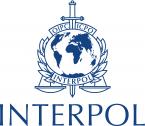
The International Criminal Police Commission (ICPC) was created in 1923 with headquarters in Vienna, Austria, on the initiative of Dr Johannes Schober, president of the Vienna Police.
In 1956, following the adoption of a modernized constitution, the ICPC becomes the International Criminal Police Organization-INTERPOL, abbreviated to ICPO–INTERPOL or just INTERPOL. The Organization becomes autonomous by collecting dues from member countries and relying on investments as the main.
Today INTERPOL is the world’s largest international police organization, with 190 member countries, and its role is to enable police around the world to work together to make the world a safer place. Its high-tech infrastructure of technical and operational support helps meet the growing challenges of fighting crimes that have a transnational dimension and require a global response. Its Headquarters, the General Secretariat, is located in Lyon, France, and each member country maintains a National Central Bureau (NCB) staffed by national law enforcement officers.
The NCB is the designated contact point for the General Secretariat, INTERPOL’s regional bureaus and member countries law Agencies requiring assistance with transnational inquiries.
INTERPOL works to prevent and investigate a wide range of crimes, delivering tangible initiatives and making a real difference to international cooperation, and in order to better achieve these purposes 16 main crime areas have been identified, including crimes against cultural goods. Since 1947, INTERPOL has invested a lot of efforts in this field with the creation of a specialized unit dedicated to assisting law enforcement globally on this matter: the Works of Art Unit. Its role in fighting against illicit traffic of cultural heritage consist in:
- centralizing information supplied by INTERPOL National Central Bureaus and other partners involved in countering the illicit trade of cultural property;
- transmitting information received to member countries and official partners as rapidly as possible;
- developing tools to enable member countries to counter the traffic in cultural property;
- organizing international conferences, either in Lyon or in member countries;
- organizing training courses on countering the traffic in cultural property; maintaining a close working relationship with the international organizations involved in countering the traffic in cultural property as UNESCO, WCO, ICOM who have also signed memoranda of understanding with INTERPOL;
- participating in international conferences and workshops throughout the world.
-
La Commission internationale de police criminelle (CIPC), a été créée en 1923, à l’initiative de Johannes Schober, chef de la police de Vienne et son siège est à Vienne en Autriche.
En 1946, à la suite de l’adoption d’une constitution modernisée, la CIPC devient l’Organisation internationale de police criminelle-INTERPOL, abrévié en OIPC ou uniquement INTERPOL. L’Organisation devient autonome en collectant les cotisations des pays membres et en comptant sur les investissements comme apport principal.
Aujourd’hui INTERPOL est la plus grande organisation internationale de police, avec 190 Etats membres, et son rôle est de permettre à la police du monde entier de travailler conjointement afin de faire du monde un endroit plus sûr. Son infrastructure de haute technologie offre un support technique et opérationnel qui aide à relever les défis croissants de la lutte contre les crimes ayant une dimension transnationale et qui nécessitent donc une réponse globale.
Son siège, le Secrétariat général est situé à Lyon en France et chaque Etat membre dispose d’un Bureau central national, dont le personnel est constitué de services nationaux chargés de l’application de la loi. Le Bureau central national est le point de contact désigné pour le Secrétariat général, les bureaux régionaux d’INTERPOL et les organismes chargés de l’application des lois ayant besoin d’assistance dans les investigations transnationales.
INTERPOL travaille pour prévenir et enquêter sur un large éventail de crimes, en promouvant des initiatives tangibles afin de faire évoluer de façon efficace la coopération internationale. Pour mieux atteindre ses objectifs, 16 principales catégories de crime ont été identifiées, dont les crimes contre les biens culturels. Depuis 1927, INTERPOL engage ses nombreux efforts dans ce domaine avec la création d’une unité spécialisée dédiée à soutenir les forces de l’ordre à l’échelle mondiale : l’Unité des œuvres d’art (Works of Art Unit).
Son rôle dans la lutte contre le trafic illicite du patrimoine culturel consiste à :
- centraliser les informations fournies par les Bureaux centraux nationaux et les autres partenaires impliqués dans la lutte contre le commerce illégal des biens culturels ;
- transmettre les informations reçues aux Etats membres et aux partenaires officiels le plus rapidement possible ;
- développer des outils pour permettre aux Etats membres de contrer le trafic de biens culturels ;
- organiser des conférences internationales, à Lyon ou dans des pays membres ;
- organiser des formations sur la lutte contre le trafic illicite des biens culturels ;
- maintenir d’étroites relations de travail avec les organisations internationales impliquées dans cette lutte comme l’UNESCO, l’OMD et l’ICOM, qui a signé un protocole d’accord avec INTERPOL ;
- participer à des conférences et des séminaires internationaux dans le monde entier.






